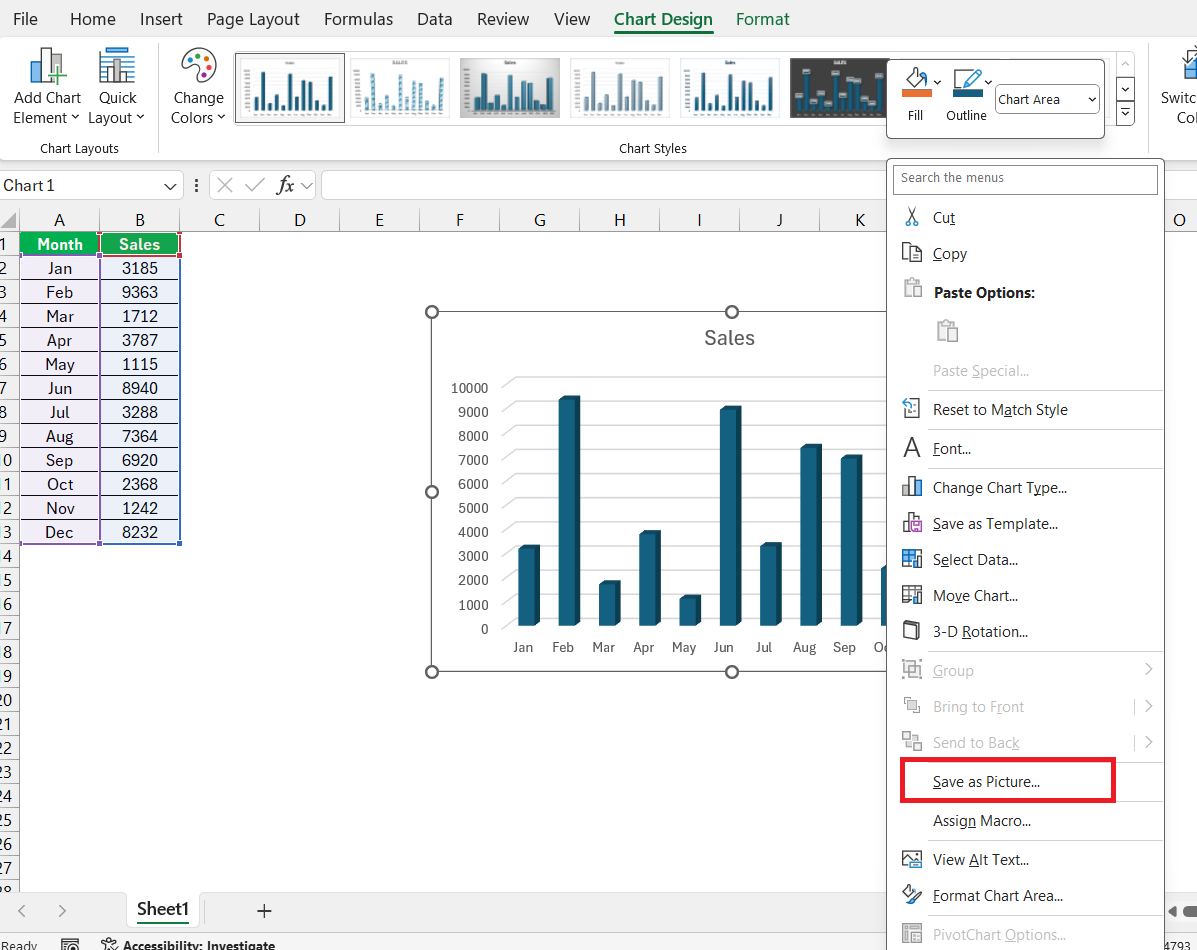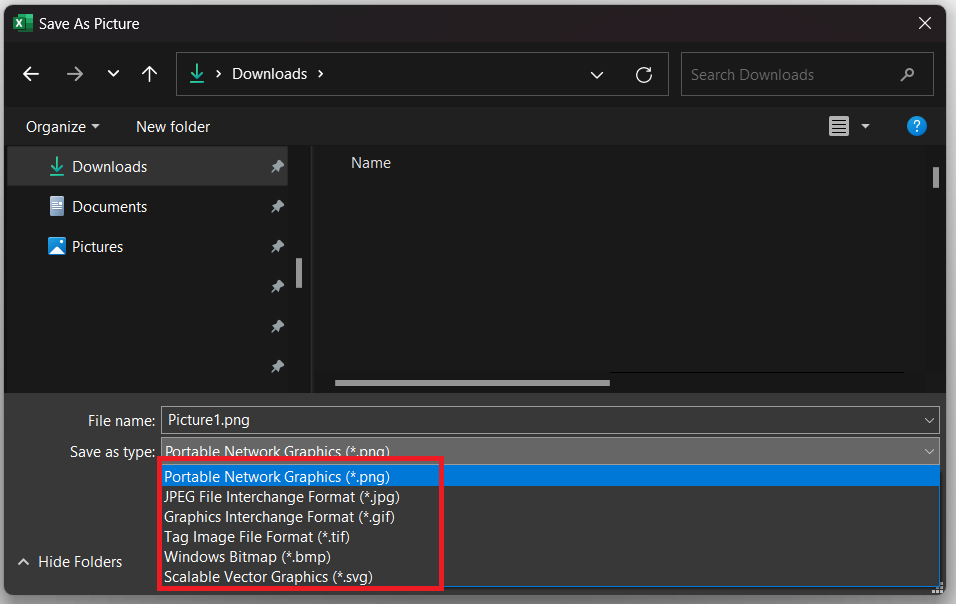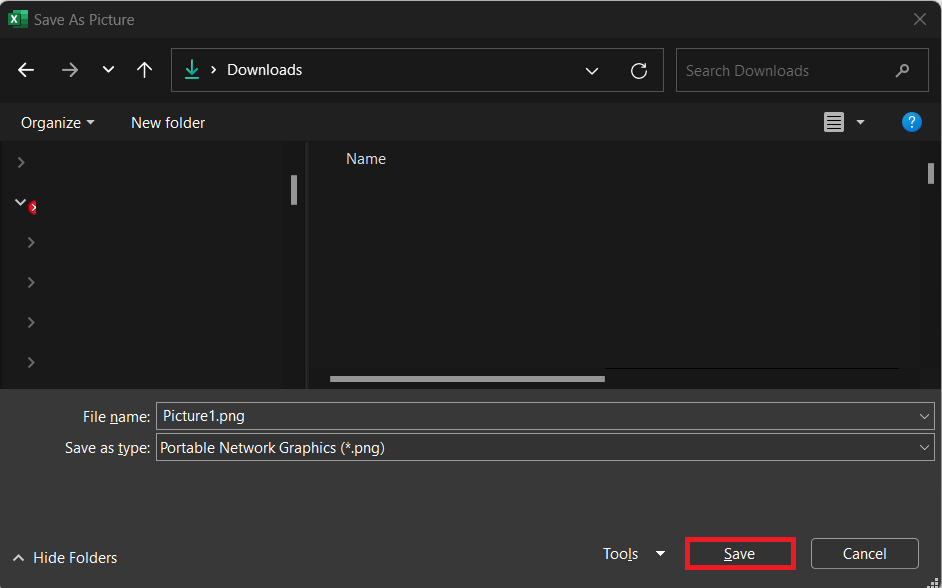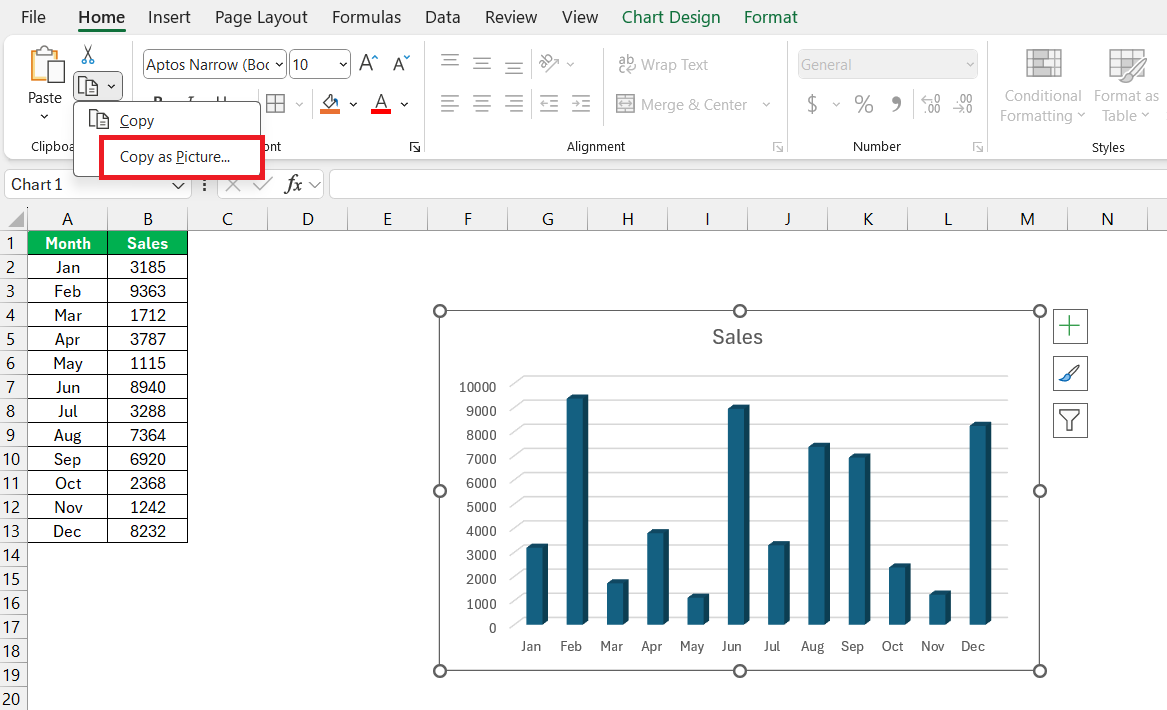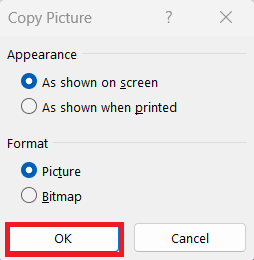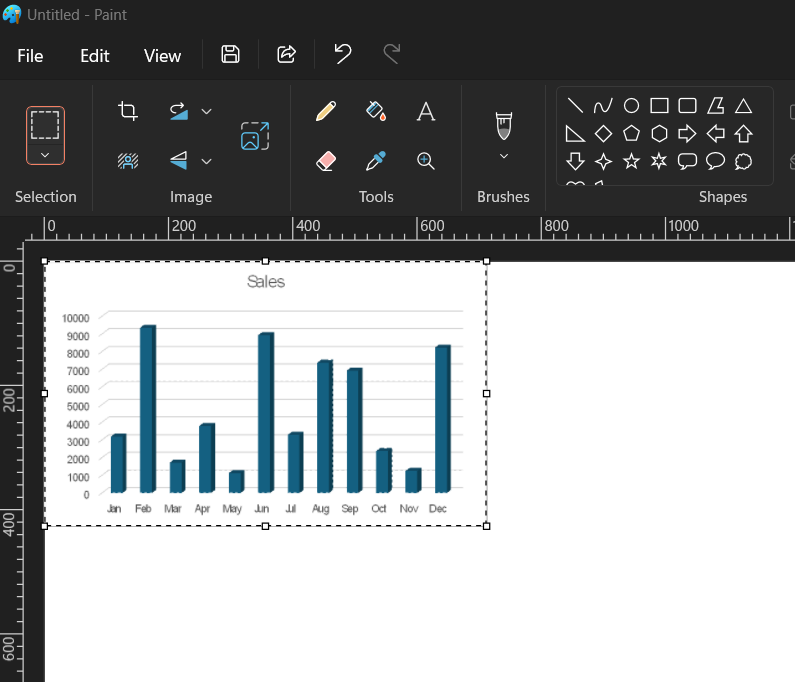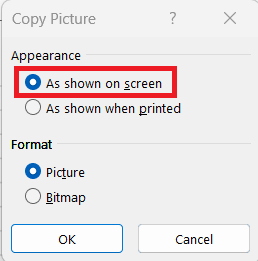When I create visual data representations in Excel, I often want to save those charts as images for use in reports, presentations, or even emails. Excel provides us with a few ways to save charts as images without much hassle. Let me walk you through three methods to save Excel charts as high-quality images quickly.
Key Takeaways:
- Excel offers several ways to export charts as images, including “Save as Picture,” “Copy as Picture,” and VBA code for automation.
- Choosing the right format (PNG, JPG, or GIF) impacts image quality, with PNG being ideal for clarity and GIF for smaller, simpler charts.
- Saving charts as images makes sharing easier across platforms, protecting formatting and ensuring consistency in reports and presentations.
- For advanced users, VBA can automate chart exports, saving time when handling multiple charts at once.
- For high-quality results, paste charts directly into PowerPoint or use “Save as Picture” to maintain the integrity of data visualizations.
Table of Contents
Introduction to Excel Chart Images
The Value of Visual Data
Understanding the significance of visual data can’t be overstated. In our information-saturated world, charts serve as a beacon, transforming complex datasets into digestible visuals that highlight trends and patterns at a glance.
For me, there’s nothing quite as convincing as a well-designed chart to quickly convey a data-driven story that might otherwise take paragraphs to explain.
Why Export Excel Charts as Images?
Exporting Excel charts as images presents a myriad of advantages. Not only does it allow for seamless integration into various documents and presentations, maintaining the quality across platforms, but it also simplifies sharing.
Oftentimes, colleagues and clients may not have Excel or might be using different email clients where attachments can become cumbersome. Turning charts into images aids in bypassing these issues. Additionally, images are less prone to unintended formatting changes, protecting the integrity of your visual data.
As someone passionate about preserving the precision of information, this aspect resonates substantially with me. The ability to use non-Office applications and enhance charts with advanced graphics editors further justifies exporting Excel charts as images. For these reasons, we tend to appreciate more the ease of shareability and extra layer of safeguarding that exporting as images offers.
Step-by-Step Guide to Save Excel Charts as Images
Using ‘Save As Picture’ Functionality
Utilizing the ‘Save As Picture’ functionality in Excel is remarkably straightforward, and I find it incredibly efficient for quick exports of individual charts. After we’ve polished our chart and it’s ready to make an appearance outside of Excel, the process is simple.
We first initiate by right-clicking the chart in question. Among the contextual menu options, ‘Save As Picture’ stands out as our key to chart liberation.
It’s just a matter of selecting it to bring up the ‘Save As Picture’ dialog box, where we define the picture’s file name, choose our preferred format (be it PNG or JPEG), and decide the destination where we want the image to reside.
Clicking ‘Save’ is the final act of this short play, and voilà, we have an image file magicked from a chart, ready to be utilized in slides, reports, or even embedded on web pages.
The beauty lies in the simplicity. There’s no need for third-party tools or complex procedures—a few clicks and your chart is perpetuated in image form.
Copy as Picture
STEP 1: Select the chart you want to capture as an image. Go to the Home tab and in the Clipboard group, click the small arrow next to Copy. From the dropdown menu, select Copy as Picture.
STEP 2: Click OK to confirm your choices.
STEP 3: Open an application where you want to paste the picture, such as Paint, Word, or PowerPoint. Press Ctrl + V to paste the image or right-click and select Paste.
Tips and Tricks for High-Quality Images
Image Format Selection: PNG, JPG, or GIF?
When choosing an image format, we must weigh the pros and cons of each option in relation to our end goals. For me, PNG is often the champion for its crisp quality and support for transparent backgrounds, which are perfect for detailed charts and digital usage where fidelity is crucial.
On the other hand, if I need a balance between quality and file size or am dealing with complex charts that resemble photos, JPG could be the ideal pick. It’s worth noting, however, that JPG compression can result in quality loss—something to consider if utmost clarity is essential.
GIF formats cater to simpler chart designs with a limited color palette. They’re generally smaller in size, making them a solid choice for quick sharing, although their simplicity might not do justice to more intricate data visualizations.
In summary, for high-resolution and professional usage, PNG is my go-to. When file size matters more than pixel-perfect representation, I lean towards JPG. And for simplicity and speed, I don’t hesitate to choose GIF.
Whichever format we choose, it can greatly influence the usability and perception of our charts, so it’s a decision I don’t take lightly.
Additional Tips for Better Image Quality
To ensure my chart looks sharp when saved as an image, I like to:
- Adjust the Chart Size: I make the chart slightly larger than needed, as this can improve clarity, especially if I’m resizing it later.
- Increase Screen Resolution: If I’m using Copy as Picture > As shown on screen, having a high screen resolution can make a difference.
- Consider Image Compression Settings: When saving in formats like JPEG, I check for quality settings if available to avoid over-compression.
FAQs
How do I export an Excel chart as an image?
To export an Excel chart as an image, right-click on the chart and select ‘Save As Picture’. Choose your preferred format and location, then click ‘Save’. Your chart is now saved as an image file, ready to be used outside of Excel.
Can I Save All Charts in an Excel Workbook as Images Simultaneously?
Yes, you can save all charts in an Excel workbook as images simultaneously. Use the ‘Save As’ function, choose ‘Web Page’ as the format, and select ‘Entire Workbook’. This will create image files for all charts in a specified folder.
How Do I Maintain Chart Quality When Saving as an Image?
To maintain chart quality when saving as an image, export as a PNG for clarity, and ensure the chart is appropriately sized in Excel to avoid distortion. Check resolution when using graphic editors for fine-tuning.
What is the Best Way to Save an Excel Chart for a Presentation?
The best way to save an Excel chart for a presentation is to copy it directly into PowerPoint. Right-click the chart, choose ‘Copy’, then paste it into your slide with ‘Keep Source Formatting & Link Data’ to maintain quality and editability.
Are There Any Limitations to Saving Excel Charts as Images in Excel for Web?
Yes, Excel for the Web has limitations; it lacks the ‘Save As Picture’ option found in the desktop version. Instead, copy the chart and paste it into a graphic editor or use the desktop app for full functionality.
John Michaloudis is a former accountant and finance analyst at General Electric, a Microsoft MVP since 2020, an Amazon #1 bestselling author of 4 Microsoft Excel books and teacher of Microsoft Excel & Office over at his flagship MyExcelOnline Academy Online Course.

